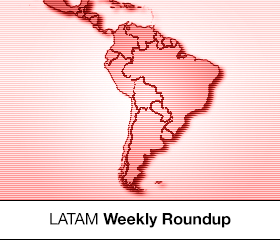A Third of Brazilians Don’t Pay Attention to Mobile Ads; Digital Cable TV Rise in LATAM
by on 29th Mar 2016 in News


This week's LATAM Round Up brings details of a survey that measured the impact of ads on different audiences and found out that almost half of Brazilians never interact with mobile campaigns; numbers from the TV market in Latin America, showing that digital TV is increasing despite the satellite leadership in revenue; and, finally, Adsmovil's new leadership in Brazil: the company nominated a new country manager and a head of programmatic.
Almost half of Brazilians do not interact with ads
One-third of Brazilian mobile internet users says that they never pay attention to ads. Two-thirds do it sometimes — a natural consequence of mobile users preferences: more control of what they choose to pay attention to, rejecting what is invasive. This way, as expected, the 'skippable' ads are the most preferred format; 48% of Brazilian users consider pre-roll video with a skip option a positive kind of ad.
Those numbers come from recent research made by Mobile Marketing Association (MMA), in partnership with Adsmovil; they heard 1,200 owners of mobile devices in Brazil, from 14 to 55 years-old.
Almost half of them (41%) are impacted by mobile ads; however, do not click. Among the Millennials (14-24 years) this ratio is even bigger: 50% do not interact with campaigns on their mobile devices. Only 29% of the boomer generation (45-55) admit they never click on ads.
The level of attention is similar when comparing the impact of mobile ads on the different generations. The survey shows that Facebook is a strong channel to reach mobile users; whereas YouTube appears as the second most visible mobile advertising channel. Yet, different websites are relevant according to the audience the brand wants to reach: among Gen X (35-44 years) and boomers (45-55), the main audience in websites is bigger than YouTube and almost close to Facebook in terms of visibility.
In terms of reasons to pay attention to ads, Gen X (25%) and Boomers (23%) consider their interest in the brand the main factor. Among Millennials, the scenario is more diverse and balanced: they are motivated by coupons or discounts (19%), their interest in the brand (18%), visual beauty (14%) and their interest in the topic in general (14%).
The full research is available online and can be downloaded: http://bit.ly/mmaadsmovil (In Portuguese)
Digital TV on the Rise in LATAM
Analog cable TV in Brazil is free falling: down to just USD$249m (£174m) projected in 2021 from USD$1.74bn (£1.22bn) this year. In the same period, digital cable TV is expected to grow — or as eMarketer defines, "skyrocket": to USD$5.3bn (£3.72bn) from USD$3.5bn (£2.46bn).
The data comes from a report made by Digital TV Research Limited, which also emphasises an increase in IPTV. The sector should grow from USD$215m (£150m) in 2016 to USD$796m (£558m) in 2021.
Also, as revealed by other research, on-demand TV is expected to keep growing. Subscriptions in Latin American have increased from 19.5 million in 2010, or 13.7% of reach, to 52.3 million in 2015, which represents 34.6% of all the households in the region. Digital TV estimates that subscriptions will keep growing strongly to reach 80.9 million in 2021, or almost half (49.8%) of all households in Latin America.
The biggest driver of revenue in the TV media sector is still satellite, with digital cable as a new rising channel. Satellite TV is forecast to jump from USD$12.6bn (£8.85bn) this year to USD$13.1bn (£9.2bn) in 2021.
Adsmovil has a new country manager in Brazil
Adsmovil announced Leila Guimarães as its new country manager in Brazil. Guimarães has 16 years of experience in digital media, previously at Real Media, Boo Box, and publishers such as Terra Networks and IG.
The company also nominated Daniel Winter as their new head of programmatic. Winter is specialised in programmatic media, having been close to the sector in the past 15 years. His experience is in companies such as Addcomm, Tesla, Tribo, and Wunderman; where he recently led the creation of its first programmatic business unit in Brazil.








Follow ExchangeWire